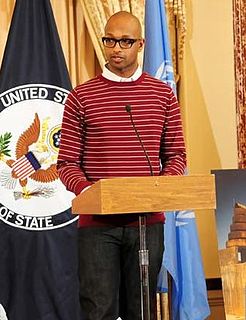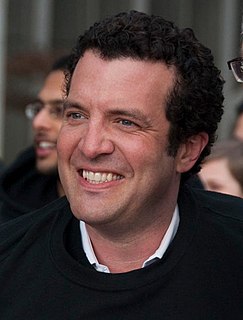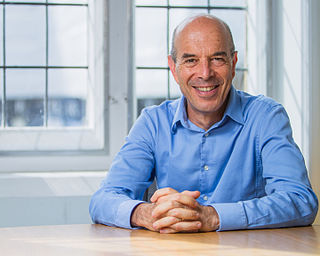A Quote by Manoj Bhargava
People with water-borne diseases occupy more than 50% of hospital beds across the world. Does the answer lie in building more hospitals? Really, what is needed is to give them clean water.
Related Quotes
Water is one of the most basic of all needs - we cannot live for more than a few days without it. And yet, most people take water for granted. We waste water needlessly and don't realize that clean water is a very limited resource. More than 1 billion people around the world have no access to safe, clean drinking water, and over 2.5 billion do not have adequate sanitation service. Over 2 million people die each year because of unsafe water - and most of them are children!
Clean water is a necessity that we can no longer take for granted. Each year more people die of water related diseases than any other cause of death on this planet. With a higher rate of suffering and mortality than diabetes, cancer, high cholesterol, or war; or any two combined for that matter! An entire economy is growing around water. Those without money are suffering the most and risk severe illness from contaminated sources
When I'm talking about a developing world, I also look at clean-water access - women who are more vulnerable to sexual violence when they're fetching water. And talking about what we have going on here, with our carbon footprints and our emissions, is just as important to me as figuring out how to provide clean water to people who need it in regions around the world.
I've been around water my whole life, so I basically really learned at a young age the importance of it but also one day, at one point, clean water will be hard to find. There's so many people throughout the world that don't have access to clean water. Obviously we're extremely fortunate to have the opportunities that we have and to have all the water that we have. Like I said, and I can't say it enough, we all should work together to try and conserve as much as we possible can.
When I think about what makes Canada great, fresh water is right at the top of the list. We have over two million lakes in this country and more than enough people who are willing to mess with them. My Canada includes weird scientists who are devoted to keeping our water clean. When we stand up and we sing O Canada, we pledge to stand on guard for thee. If that doesn't include our water, we might as well sit down and give up.
We buy a bottle of water in the city, where clean water comes out in its taps. You know, back in 1965, if someone said to the average person, 'You know in thirty years you are going to buy water in plastic bottles and pay more for that water than for gasoline?' Everybody would look at you like you're completely out of your mind.
We buy a bottle of water in the city, where clean water comes out in its taps. You know, back in 1965, if someone said to the average person, You know in thirty years you are going to buy water in plastic bottles and pay more for that water than for gasoline? Everybody would look at you like youre completely out of your mind.
It takes 1,000 tons of water to produce 1 ton of grain. As water becomes scarce and countries are forced to divert irrigation water to cities and industry, they will import more grain. As they do so, water scarcity will be transmitted across national borders via the grain trade. Aquifer depletion is a largely invisible threat, but that does not make it any less real.
You talk to people, and they don't understand our water. They come and turn on a tap and drink clean water, and to them, that's amazing. Millions of people around the world have to carry water miles and miles, and that's all they have. It's hard for fat Americans like myself to even understand that.
All over East Africa-indeed, all over Africa-it is normal for people to walk a kilometer or two or six for water. In more arid areas, people walk even greater distances, and sometimes all they find at the end is a pond slimy with overuse. More than 90 percent of Africans still dig for their water, and waterborne diseases such as typhoid, dysentery, bilharzia, and cholera are common. The bodies of many Africans are a stew of parasites. In some areas the wells are so far below the earth's surface that chains of people are required to pass up the water.
Obama might as well be president of Turkey or Brazil; it does not matter. It's the system that is absolutely flawed, where 25 or 35 or 50 people make multi, multi-billions on building Olympic structures while people live in Barbados and have no roads or clean drinking water. There's something pretty inequitable there.


































